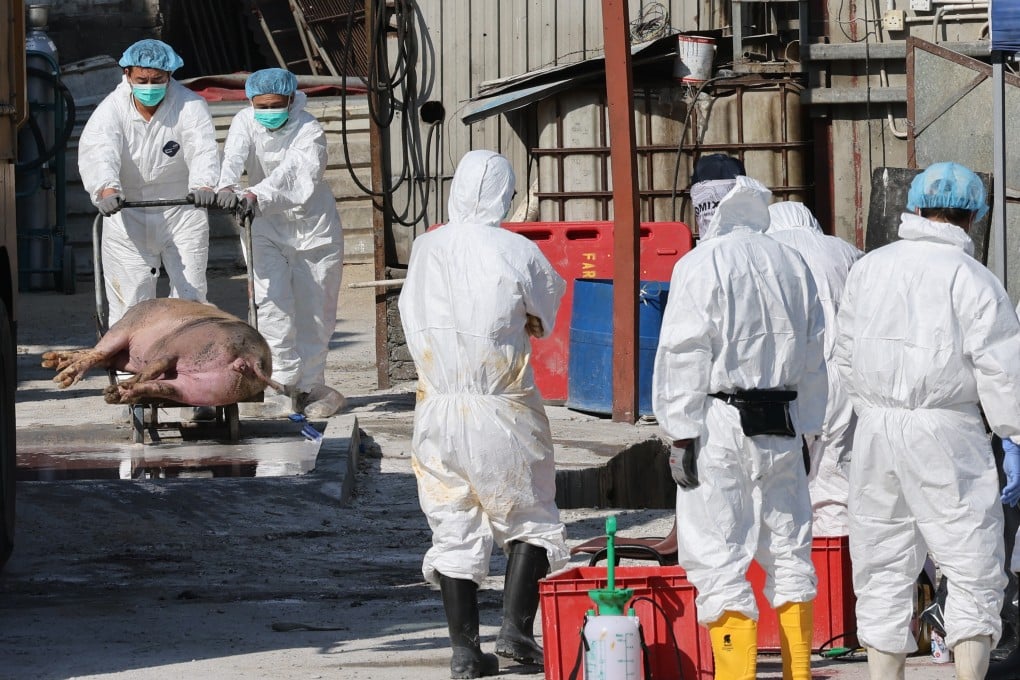Can Hong Kong learn to live with African swine fever? Expert says mass pig culls not the answer amid largest recorded outbreak
- Veterinary expert calls for government to change tack after city slaughtered 14,000 pigs from eight farms in response to outbreak that started last November
- Industry chiefs urge officials to step up testing and increase financial support as they warn some farms could take up to two years to recover from outbreak

Hong Kong should learn to live with African swine fever and move away from mass pig culls, a top veterinary expert has said, as farmers appealed to authorities to step up financial support and testing measures amid the city’s largest outbreak of the disease.
Since November, the government has culled more than 14,000 pigs, the biggest such operation on record, after samples from eight farms in Lau Fau Shan, San Tin and Kwu Tong tested positive for the virus. The outbreak affected about 20 per cent of the city’s 43 pig farms.
City and overseas health authorities have said humans cannot be infected by African swine fever and the condition does not pose any food safety risk. But the mortality rate for pigs could reach 100 per cent, with no effective vaccines or treatments available at present.

Dirk Pfeiffer, chair professor of One Health at City University’s College of Veterinary Medicine, said Hong Kong would need to learn to live with the virus.
“I think we may well have to do the same as most affected countries in the region, including mainland China, Vietnam and the Philippines, [which are all] living with the virus,” he said.
The veterinary expert also pointed to the large number of pig farms in Southeast and East Asia with low biosecurity measures and the region’s very high pork consumption as reasons for a change of tack.
“Under these circumstances, a control policy based on the culling of all pigs on infected farms is neither justifiable nor sustainable,” he said.
